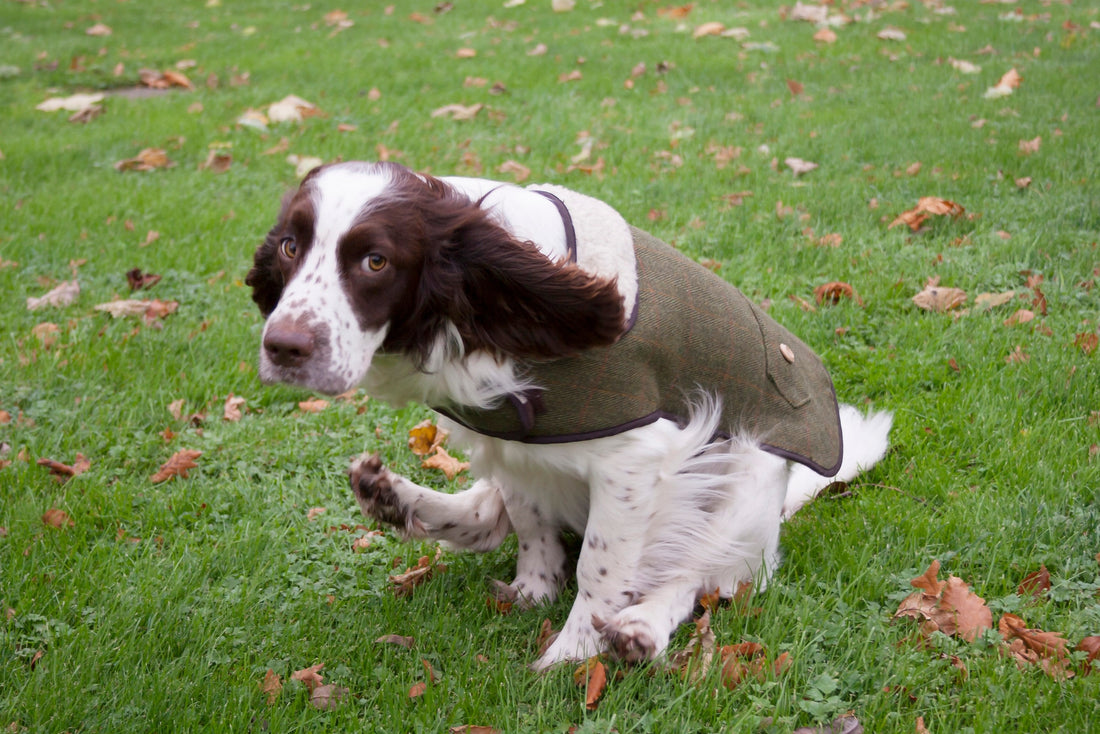Understanding & Treating Diarrhea in Dogs
Diarrhea in dogs is a common gastrointestinal issue that can be distressing for both pets and pet parents. From an occasional bout of loose stool, to chronic and severe cases of diarrhea, understanding the causes and effective treatment methods for diarrhea in dogs is crucial for their health and well-being. In this article, we will explore the causes, treatment options, home remedies, and the best ways to prevent diarrhea in our pups.
What Are the Most Common Causes of Diarrhea in Dogs
There are a variety of factors that can trigger and contribute to diarrhea in dogs, including:
Dietary Upset
A sudden change in diet can cause dogs to experience tummy upset. This may include introducing a new diet too quickly without slowly transitioning, or feeding too many rich table scraps, as well as eating something they shouldn't!
Food Allergies and/or Intolerances
Some dogs may be sensitive, intolerant, or even allergic to certain ingredients in their food, resulting in reactions ranging from vomiting and diarrhea, to itchy skin, swelling, sneezing and more, as a result of an allergic reaction or food intolerance.
Infections
Viral, bacterial, and parasitic infections are common causes of diarrhea in dogs, and include salmonella, parvovirus, and giardia.
Stress and Anxiety
Just like us, dogs can experience stress and anxiety. These emotional issues can lead to gastrointestinal issues, including upset stomach, vomiting and diarrhea, and need to be addressed by a professional ASAP.

Medication
Many meds come with warnings regarding the many potential side effects.
Toxins
Certain medications or exposure to toxic substances can irritate a dog's digestive system and result in diarrhea.
Inflammatory Bowel Disease (IBD)
IBD is a chronic condition where the dog's immune system mistakenly targets the gastrointestinal tract, causing chronic diarrhea.
Chronic Diarrhea in Dogs
When dogs experience chronic diarrhea, it's typically persistent and often linked to an underlying health condition such as irritable bowel syndrome or pancreatic disease.
Remember, understanding the specific cause of your dog's diarrhea is essential in determining the most effective treatment.
Treatment for Diarrhea in Dogs
When your dog is suffering from diarrhea, the primary concern is to alleviate their discomfort and restore digestive health.
What stops diarrhea in dogs? Here are some approaches to consider:
Consult a veterinarian: If your dog's diarrhea is severe, accompanied by other symptoms like vomiting, blood in the stool, or dehydration, it's crucial to seek professional help. Your veterinarian can determine the cause and recommend appropriate treatment.

Hydration: Diarrhea can lead to dehydration, so it's essential to ensure your dog has access to clean, fresh water at all times. You can also offer an oral rehydration solution designed for dogs or even ice chips if they are reluctant to drink.
Fasting: Giving your dog's digestive system a break by feeding a bland diet, or even allowing them to fast for 12-24 hours if they choose, will work to calm their upset stomach and prevent further upset. Gradually reintroduce bland, easily digestible foods like boiled rice and chicken.
Prescription Medication: In some cases, your veterinarian may prescribe medication for diarrhea in dogs to manage symptoms.
Over the Counter Medication: Anti-diarrhea liquid for dogs contains kaolin and Pectin, two ingredients highly effective at stopping diarrhea quickly,
Supplements: Available in different easy-to-use forms of delivery, a probiotic supplement can help to both restore and maintain the balance of healthy gut bacteria.
Home Remedies for Diarrhea in Dogs
In addition to consulting a veterinarian, diarrhea treatment in dogs can include home remedies you can use to support your dog's recovery:
Plain canned pumpkin is a natural remedy that can help firm up loose stools. A tablespoon or 2 mixed with your dog's food can be very beneficial.
Bland Diet: A diet of boiled rice and chicken is gentle on the stomach and can help alleviate diarrhea. Make sure to remove the skin and bones from the chicken. A bland diet of white meat chicken and plain white rice can be useful for several days until regular digestion is restored.

Ginger: Ginger can be soothing for your dog's digestive system. You can add a small amount of grated fresh ginger to their food or prepare a mild ginger tea (without sweeteners) to offer in small amounts.
Keep the Environment Calm: Reducing stressors in your dog's environment can help with diarrhea caused by anxiety. Calm, soothing interactions and a consistent routine can make a difference.
Preventing Diarrhea in Dogs
Gradual Diet Changes: When switching your dog's food, do it gradually over several days to allow their digestive system to adapt.
Avoiding Harmful Foods: Keep harmful human foods (like chocolate, onions, and grapes) out of your dog's reach.
Hygiene: Ensure that your dog's living environment is clean, and that they are not exposed to toxic substances or spoiled food.
Regular Veterinary Visits: Annual Vet check-ups with routine bloodwork is essential for staying on top of your pet's health, and can help identify underlying issues before they become serious and lead to a difficult diagnosis and difficult to manage symptoms like chronic diarrhea.
Diarrhea in dogs can be distressing and upsetting, but with the right information and approach, it can be managed effectively. Understanding the causes, seeking professional help when needed, and employing home remedies can help your furry friend get back to their happy, healthy self.
Remember to always prioritize your dog's well-being, and consult your veterinarian for guidance in treating and preventing diarrhea.
Products related to this article:
Every Sale Supports a Shelter Pet. Learn More.
Made in Vermont. Learn More.
If you suspect your pet is sick, call your vet immediately. For health-related questions, always consult your veterinarian, as they have examined your pet, know the pet's health history, and can make the best recommendations for your pet.




